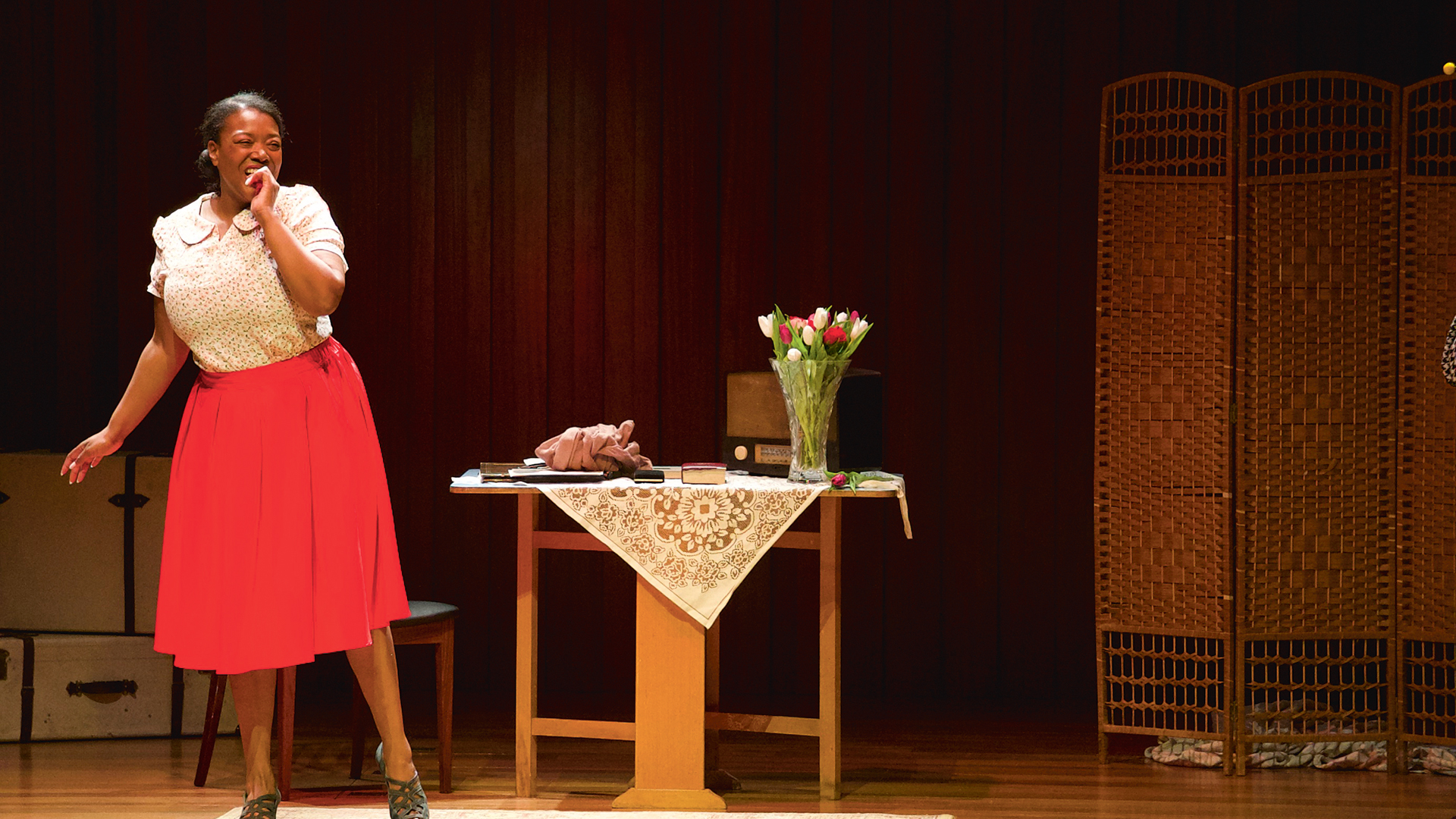On screen, a woman is talking about wearing a coat. It was beautiful, she said, yet she cried as she wrapped it around her; a companion quips that she wore hers inside on an almost-daily basis. On stage, soprano Abigail Kelly slips into a thick winter jacket, interpreting these memories through carefully crafted melodic lines. Shirley J Thompson’s opera Women of the Windrush mixes a simple staging for solo voice and piano (played here, at the Barbican’s Milton Court, by Melissa Morris) with real-life accounts projected on a large screen above the performers.
The true stories are intertwined with the staged narrative: Kelly and Morris are clearing out the home of a late relative from the Windrush era, discovering pieces directly referenced in the footage.
- I was made homeless in my 60s and slept on night buses. Then I found opera – and it saved me
- The quest to find the Windrush anchor to celebrate a generation that shaped Britain
- Children of Windrush: Mica Paris, Jay Blades, Lenny Henry and more reflect on heritage and identity
Some items inspire humorous anecdotes: on weekends, the women recall preparing large pots of rice and peas – whether they were hungry or not. The point was to be ready to offer a meal to a friendly passer by; even if – due to the different living arrangements and cold weather – such impromptu visitors were rare.
The cold was a constant threat. On-screen discussions turn to poor coal fires – and their hair falling out; on stage, Kelly tightens her head scarf. Of course, the Windrush generation faced even greater challenges. As the soprano sings of her ‘African countenance here, a European countenance there’ she feels ‘ripped from her existence’.
The Windrush period – named after one of the ships that transported those who responded to an invitation to leave the West Indies to help the UK rebuild itself after the Second World War – has been mired in recent scandal after a number of people, many long-term residents and born in the UK, were wrongly deported.
But, as Thompson’s opera reminds us, the mistreatment began almost immediately. In “Sorry Love”, a Windrush-styled actor modelled on Thompson’s mother paces the streets with a list of addresses, looking for accommodation. The breezy response, ‘Sorry love!’ belies a deeply embedded racism: it was on brazen display in a newspaper clipping advertising rooms that says ‘no Irish, no Blacks and no dogs’.










